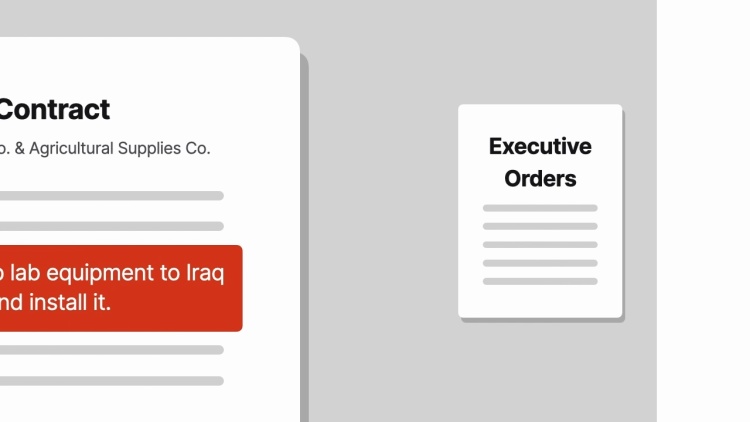United States v. Arch Trading Co.
United States Court of Appeals for the Fourth Circuit
987 F.2d 1087 (1993)
- Written by Robert Cane, JD
Facts
Arch Trading Company (defendant) sold and installed laboratory equipment. Arch Trading had been conducting business in Iraq prior to August 2, 1990. On August 2, 1990, President Bush issued executive orders pursuant to the International Emergency Economic Powers Act (IEEPA), prohibiting United States persons from traveling to Iraq and dealing with the Iraqi government or its agents. Violations of executive orders issued under the IEEPA carried criminal penalties. At this time, Arch Trading was in the middle of completing the sale and installation of laboratory equipment for a quasi-governmental agricultural company owned by the Iraqi government. A majority of the equipment had already been delivered to Iraq and was awaiting installation. Initially, two Arch Trading executives attempted to enter Iraq to install the equipment, but they failed. Arch Trading retained a Jordanian company to install the equipment. One of the Arch Trading executives joined the Jordanian company in Iraq to accomplish the installation. Arch Trading was charged and convicted with conspiracy to commit an offense against the United States (plaintiff) under 18 U.S.C. § 371. Arch Trading appealed to the United States Court of Appeals for the Fourth Circuit.
Rule of Law
Issue
Holding and Reasoning (Niemeyer, J.)
What to do next…
Here's why 907,000 law students have relied on our case briefs:
- Written by law professors and practitioners, not other law students. 47,100 briefs, keyed to 996 casebooks. Top-notch customer support.
- The right amount of information, includes the facts, issues, rule of law, holding and reasoning, and any concurrences and dissents.
- Access in your classes, works on your mobile and tablet. Massive library of related video lessons and high quality multiple-choice questions.
- Easy to use, uniform format for every case brief. Written in plain English, not in legalese. Our briefs summarize and simplify; they don’t just repeat the court’s language.







